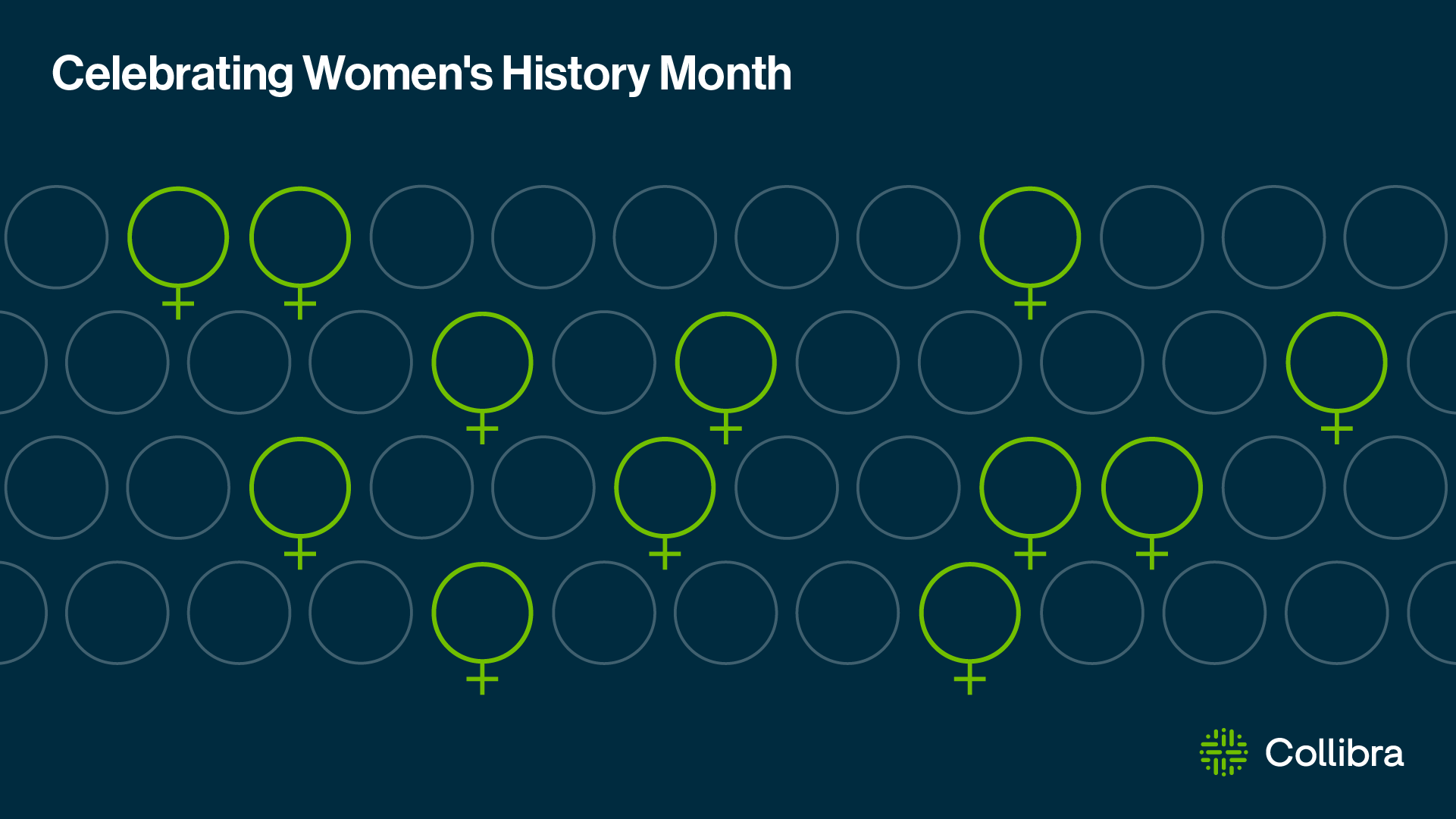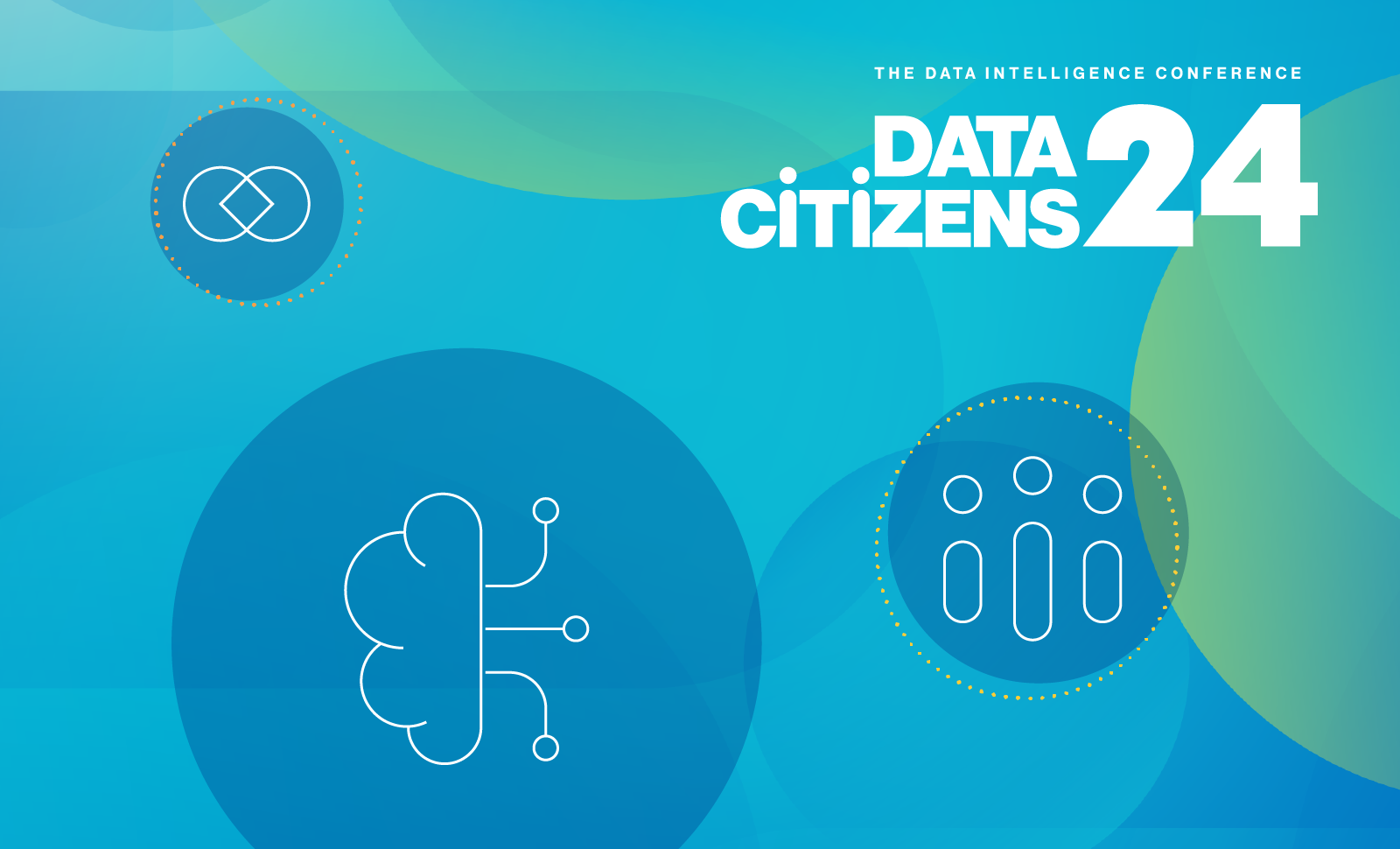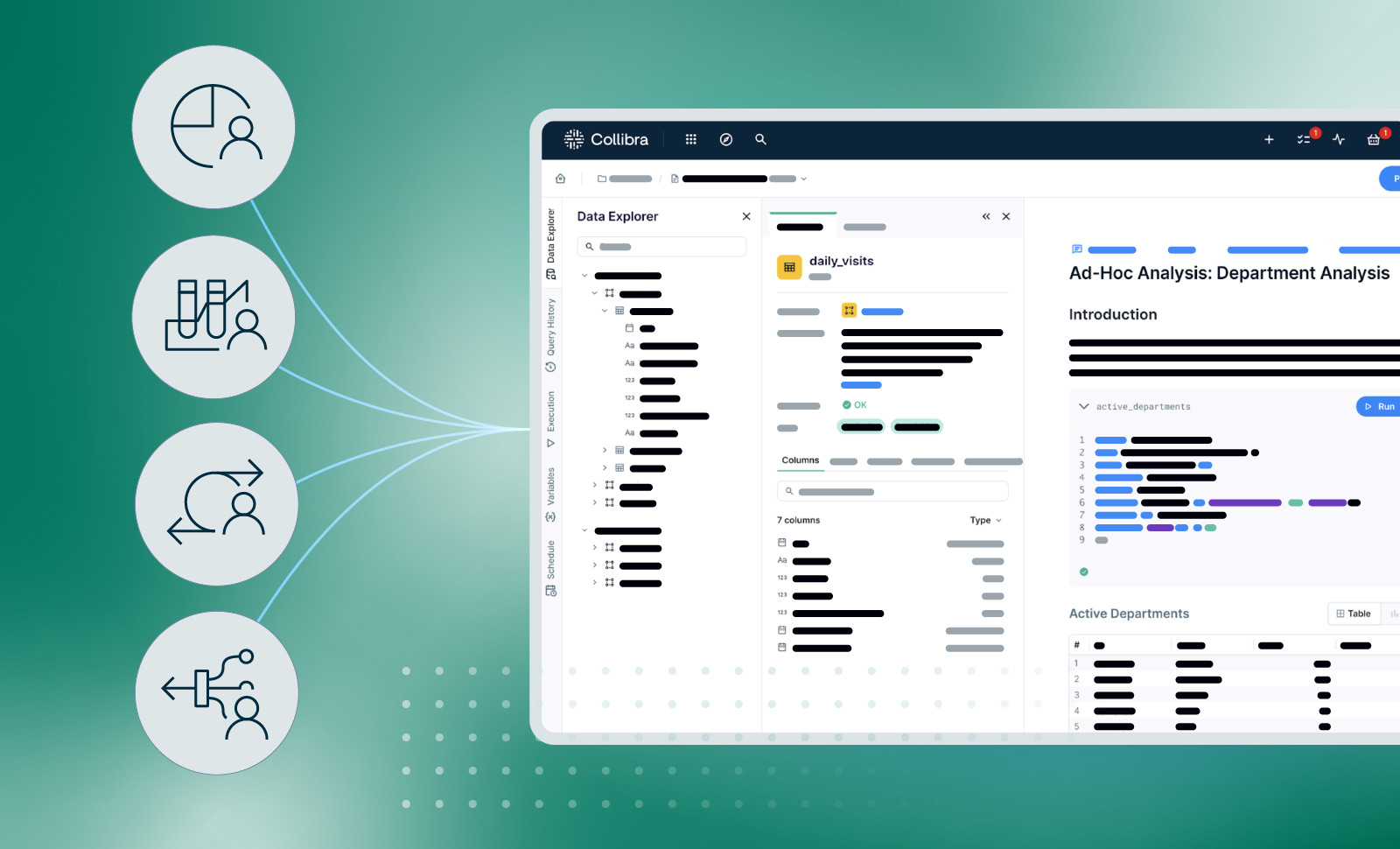This Women’s History Month we are proud to celebrate the pioneering contributions and achievements of women across history, culture and society. We invited some of the Collibra leadership team to share reflections on their own careers and how we can support the next generation of women in data.
What does Women’s History Month mean to you?
Tifenn Dano Kwan, CMO: I recently watched Radioactive, a film about Marie Curie’s life, and it made me reflect on how much has shifted for women since her time. Marie Curie had incredible courage and determination despite being continuously discriminated against and underestimated. I have the greatest admiration for women who succeed against all odds, and I think we should honor the memory of these women this Women’s History Month. What we are seeing now is the rise and prominence of women in consequential events around the globe in business, government, technology, science, and more, and the momentum is only growing.
Madalina Tanasie, Interim CTO: I see Women’s History Month as a chance to reflect on women who led and continue to lead the way for change. I’m Romanian, and growing up, March was always a celebratory month for us – it’s the start of spring and the month when we celebrate both Mother’s Day and International Women’s Day, so it is associated with rebirth and honoring women as mothers and creators of life. Now that I live in the U.S., I think of this time as a blend of many traditions that recognize the contributions and strength of women across history.
How has a mentor impacted your life and/or career?
Madalina: I have been very privileged that many people have recognized my potential and invested in me throughout my career. I’ve had many mentors who helped create opportunities for me and made sure that nothing held me back. Since I recently took on the Interim CTO role at Collibra I’ve thought a lot about one of my mentors, Julie Iskow, the COO at Workiva.
Julie was the CTO when I was at Medidata and she’s all around impressive. It has been a privilege to watch her in action and to learn from her. She started the women in tech program there, and she has been a fantastic sponsor and mentor who has had a big impact on me. She keeps herself and the leaders around her to very high standards and she has taught me to think about leadership, influence and responsibility in a different way.
Tifenn: I am very fortunate to have many mentors and I know they have been essential to my growth. My first mentor was my grandfather, who was an important figure in my childhood. At work, I’ve gotten to know many mentors who I’ve stayed in touch with over the years, including the COO of Dropbox, who is a big believer in digital and inspired me to continuously learn. I’ve also learned so much from my wife, who has helped me navigate the cultural differences between French, Asian and American cultures. And my mother-in-law Violet is one of the best mentors and leaders I’ve ever met. She is in her 90s and worked until she was 92. She loves what she does, mastered it, and became a legend. Most importantly, she always cared deeply about her employees and clients, and I take her leadership lessons with me as well.
The key thing I’ve realized along the way is that every single successful person I’ve met has had many mentors. Every leader needs guidance – you might be very gifted and have the great instincts, but you might not have the right experience, and that is where a mentor can have an important impact. When you tap into a mentor who has the right experience, the sky’s the limit.
How can we better support women in tech?
Tifenn: I think women succeed when we are given permission to fail. We know that women are less likely to pursue a role if they are not fully qualified for it, while men will feel more comfortable in a situation where they have to “fake it till you make it.” I try to create an environment where everyone can go beyond the fear of failure and stretch for opportunities that will give them a path for success that is beyond their comfort zone. When we are allowed to push our own personal beliefs, test ourselves, experiment, and fail, we all ultimately grow. I know I was given permission to fail early on and I learned so much from it, so I try to create these opportunities as a leader.
Madalina: When we talk about increasing gender diversity in tech we typically focus on the diversity of the pipeline at the entry level and that is of course important. There are a lot of women who maybe didn’t start their career in computer science, but they have a STEM background and are brilliant and fast learners. I’ve had great success when giving opportunities to women from different backgrounds and at different stages in their careers who were interested in switching to software engineering. We can attract more women to the industry if we are open minded and look for talent in the places that are less obvious.
Another known fact is that there is a steep decline in gender diversity in leadership roles in general, but especially in technology functions. Despite a lot of research proving the contrary, there is still unconscious bias around the technical and the leadership abilities of women and women have to work extra hard to overcome it. Leadership and executive presence is often associated with confidence and a certain communication style that is more often found in men. In lieu of that, ideas presented by women are often subjected to a different level of scrutiny and the barrier of entry is higher. If we are aware of this bias, we can make an effort to eliminate it.
Recently I’ve also been thinking about the many women who have had to leave the workforce during this period. I hope that the silver lining of everyone adapting to remote work is that we can learn to be more open minded about remote work in general in the future. Many women can’t commit to a long commute or working full time, and they self-select out of the workforce. Embracing remote work beyond COVID can help us bring diversity forward and create more inclusive, flexible work environments that we all benefit from.
Who is a woman that inspires you, and why?
Madalina: My mother, Domnica, has been my source of strength and my inspiration. She has encouraged me to challenge the boundaries and has constantly reminded me to be deliberate about how I use my time and my skills. She is a retired math teacher, and she has always seen education as the great equalizer. It was what gave her a way to overcome very difficult early life circumstances and she was adamant that her daughters get the best education and use it for good. I am who I am because of her commitment to these two principles that she’s applied to every interaction and in educating many generations of children who are now accomplished adults.
Tifenn: I really admire Jacinda Ardern, the Prime Minister of New Zealand. She leads with empathy and gets incredible results because of it.
What advice would you give to women who want to pursue a career in tech?
Madalina: Think outside the box and don’t discount lateral movement opportunities. I’ve encountered women who want to enter the tech space but they think they are too far away from it and that they will fail or that it would be too tough to sacrifice the path they are currently on where they have already progressed a few levels up. My experience is that what might look like a step back can be a great accelerator. A lateral move could give you a new perspective and help you develop new skills that otherwise would be difficult to acquire. Personally, I’ve always looked for special projects that I could try and learn from and said yes to new challenges even when I didn’t feel that I checked all the qualification boxes. Don’t wait for something to come to you; instead, raise your hand and pursue something new that will help you grow.
Tifenn: Don’t be afraid to have big dreams. Sometimes we think we would be better off humble and a little shy, but when you give yourself permission to be bold and dream about what you want to achieve, that passion will guide you and you will be surprised with what you can do. Personally, I fell in love with the U.S. when I first visited in my early 20s and dreamed from then on to come to the U.S., work here and become a citizen. I didn’t know I wanted to be a CMO, but I wanted to work with the best and work closely with a driven CEO. My path here was a little different than I expected, but I got here because I wasn’t afraid to be bold with my dreams.




